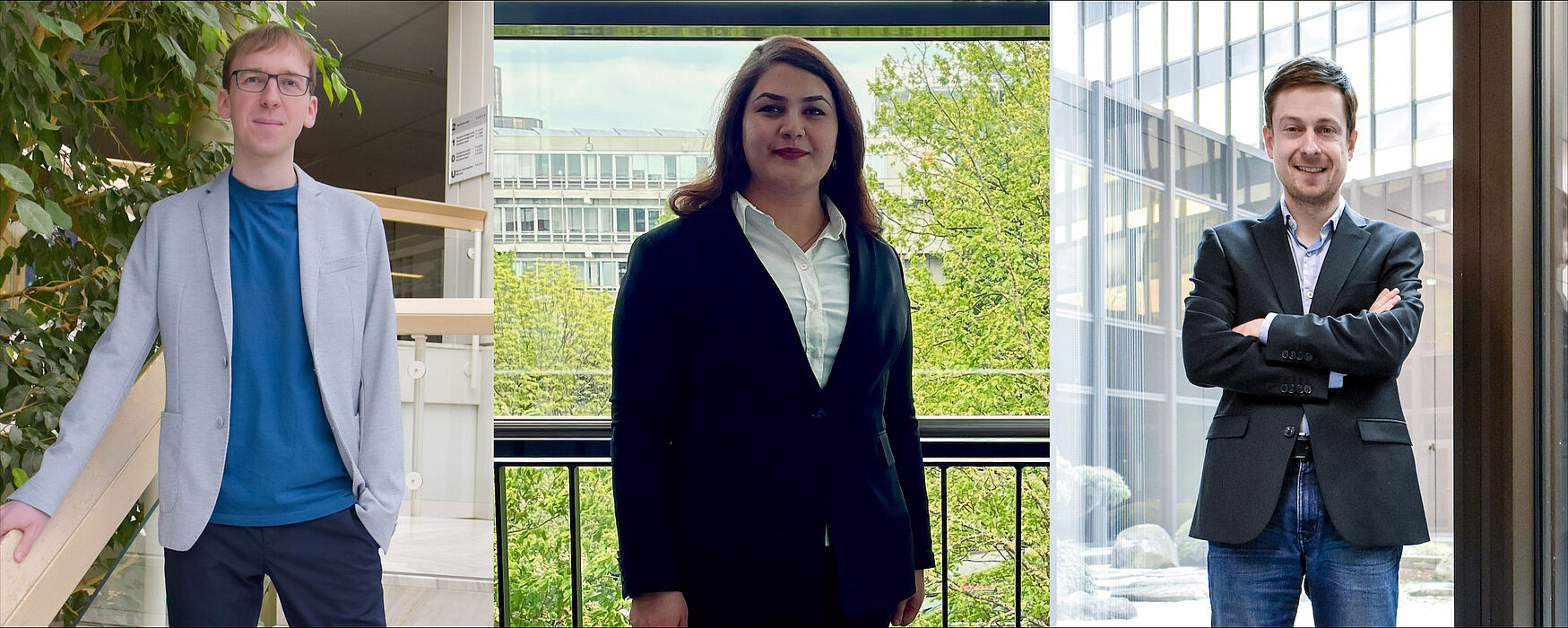On May 22, 2023, the newly acquired junior research group leaders will introduce themselves in the lecture hall O1 of the Paderborn University. With Dr. Zahra Raissi who is researching in the field of "Quantum Information", Dr. Philipp Terhörst with his field "Responsible Artificial Intelligence for Biometrics" and Dr. Stefan Heindorf with his field "Data Science" will introduce themselves.
"The newly created junior research group leaders create the opportunity to strengthen and expand the existing research focus areas and to test new research fields. This also leads to an enrichment of our teaching, which makes studying computer science with us more attractive," says Department Director Prof. Dr. Christian Scheideler.
All three young scientists have already been introduced on the departments website with short portraits in which they explain their ambitions for research and teaching. With the inaugural lectures, they will now officially introduce themselves once again to the institute and the university public.
Here you can read the topics of the presentations in detail:
Zahra Raissi
Title:
Many-body entanglement and quantum error correction
Abstract:
One of the overarching goals of quantum information science is to understand how quantum physics can be exploited to develop new technologies that are otherwise impossible. Over the past few decades, it was discovered that quantum physics has the potential to revolutionize information security and sensor technology, in addition to enabling quantum computers, devices capable of solving a number of outstanding problems in computer science, physics, chemistry, and biomedicine that are intractable with even the most powerful supercomputers. These findings have spurred enormous efforts around the world to bring these quantum information technologies to fruition.
In this talk, I will mainly focus on entanglement and especially many-body entanglement (the basic principles underlying quantum mechanics and, therefore, quantum information technologies) and quantum error correcting codes (essential to achieving fault-tolerant quantum computing). These topics are the basic principles underlying quantum information technologies that, at this point, are the central challenge to determine how quantum states can be used for quantum communication and computing and develop quantum technologies in our daily life despite their imperfections.
Phillip Terhörst
Title:
Towards Responsible Biometric Systems
Abstract:
Biometric verification refers to the automatic verification of a person’s identity based on their behavioral or biological characteristics. Due to their high performance, biometric systems are widely deployed and have a growing effect on our daily life. This includes convenience-based applications like smartphone-unlocking and critical decision-making processes such as financial transactions or forensics. However, the success of biometric recognition systems is based on adapting deep-learning techniques which comes at the cost of major discriminatory concerns regarding fairness, privacy, reliability, and interpretability. This talk will present and analyze these issues to make future biometric systems more secure, and responsible and thus, address societal needs.
Stefan Heindorf
Title:
Neurosymbolic Explainable AI for Knowledge Graphs
Abstract:
The importance of explainable AI has increased significantly over the past years: regulators would like to ensure the model’s compliance with laws and ethics guidelines, data scientists would like to improve the model’s predictions, and clients affected by the model’s decisions would like to verify fairness. At the same time, knowledge graphs (KGs) are used by over 4B people in an increasing number of applications including web search and question answering. They represent large amounts of interpretable training data which is comprehensible both by humans and machines and can serve to learn interpretable models, e.g., concepts in description logics. In this talk, I will present some of our recent research on learning concepts in description logics on knowledge graphs and I will outline directions of future research including neuro-symbolic approaches combining the strengths of symbolic reasoning with the power of neural networks, enabling models that are both interpretable and effective.

